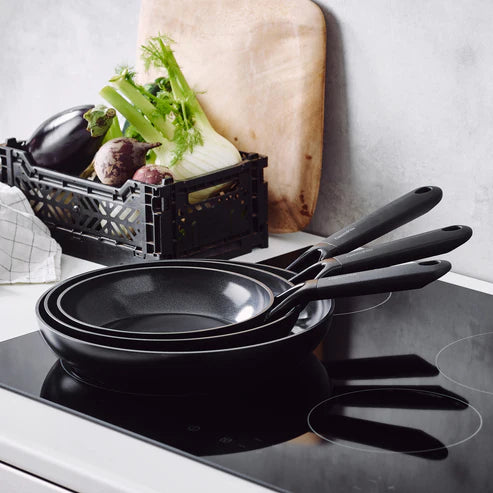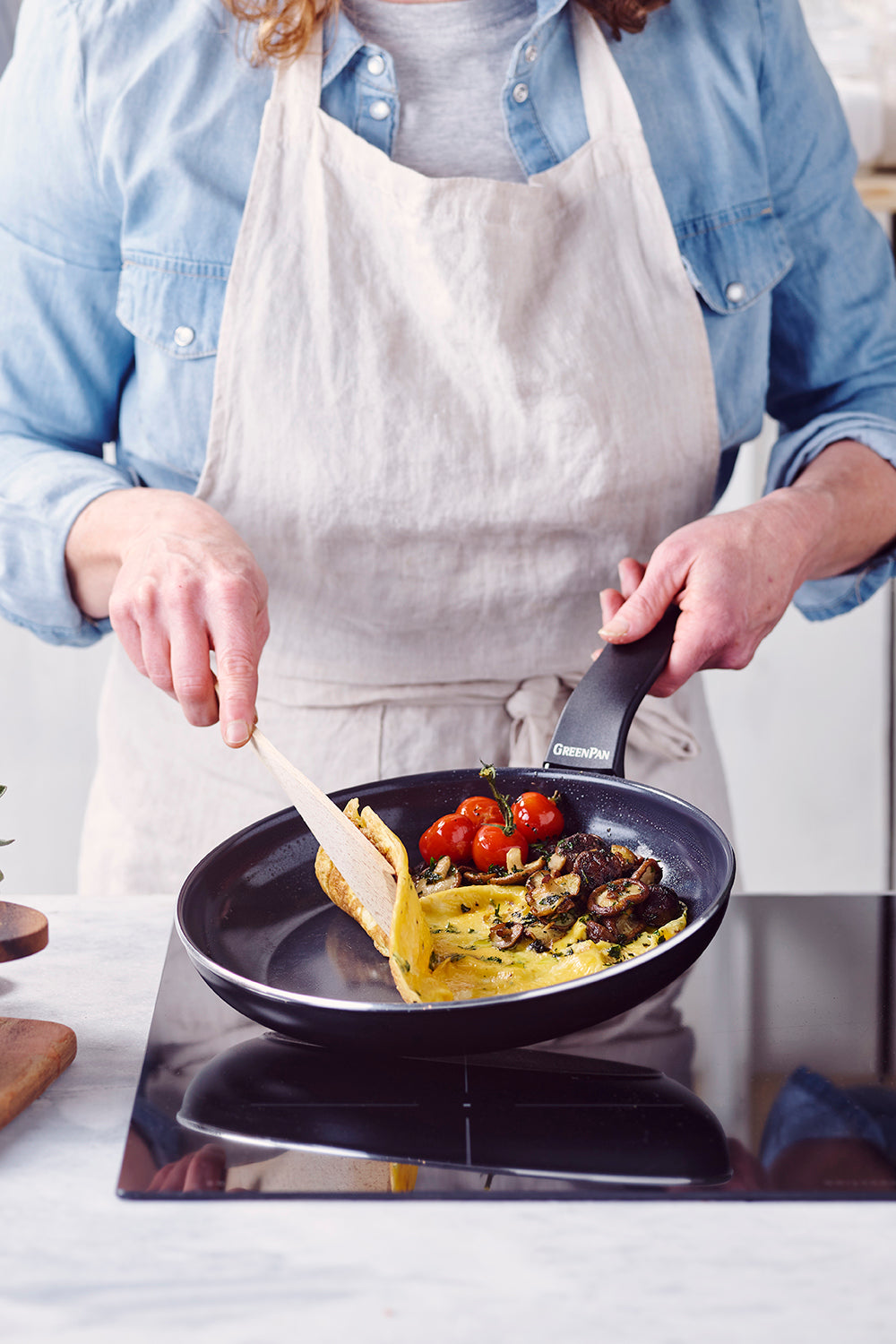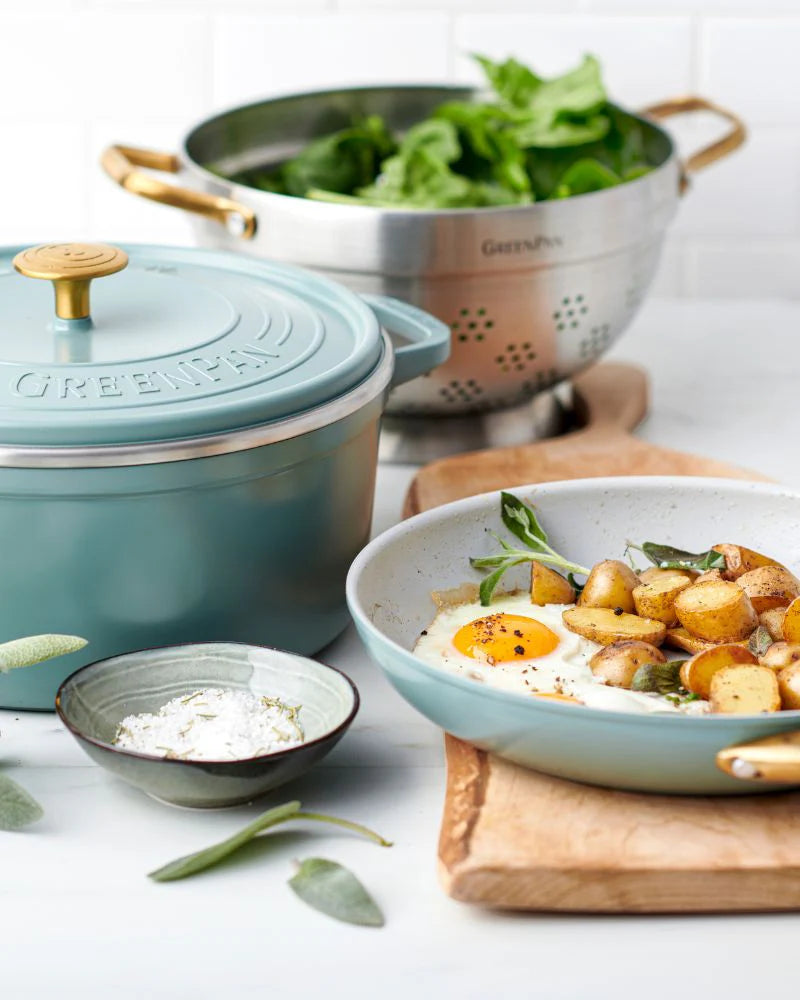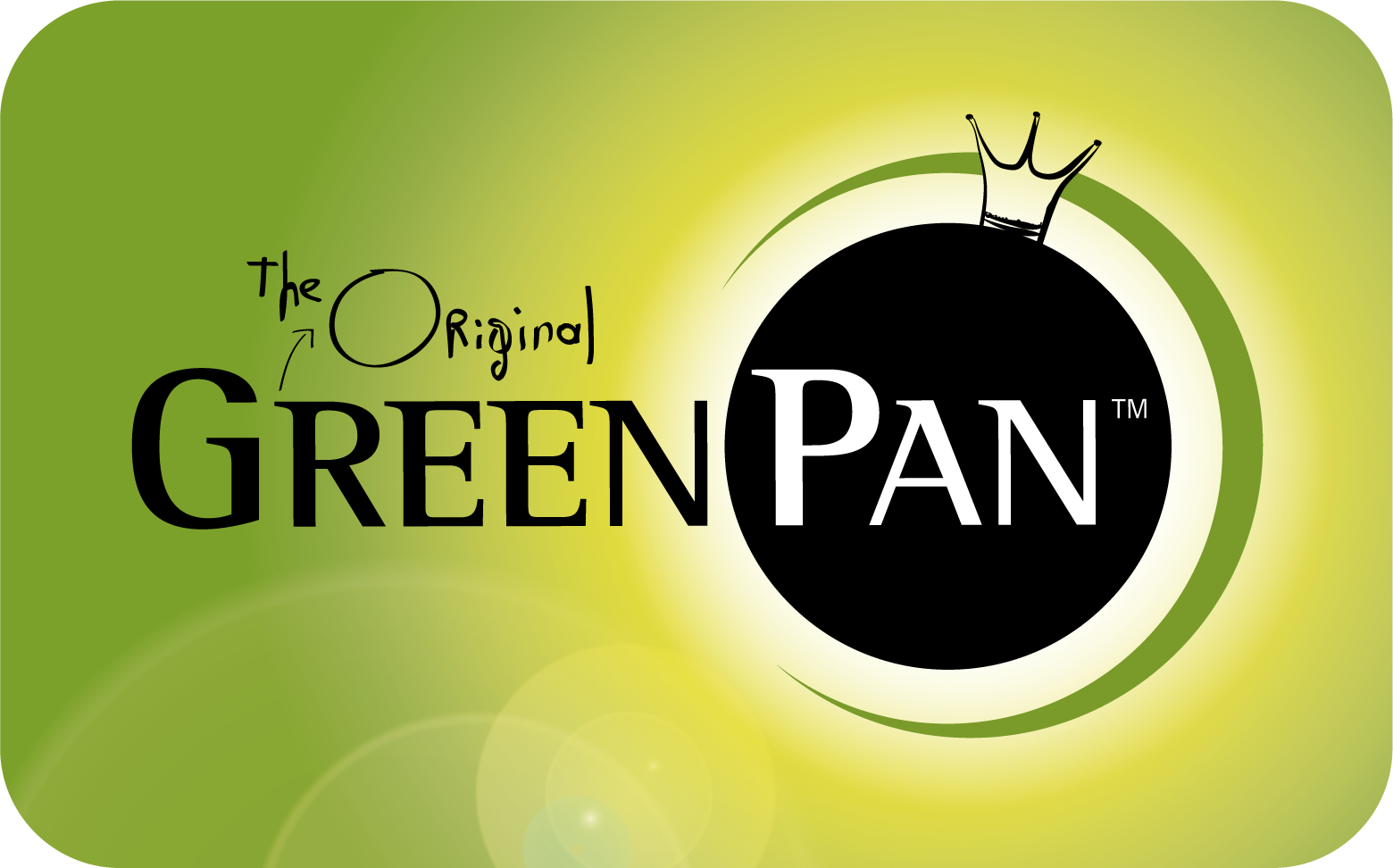What do you know about PFAS?
PFAS are toxic chemicals that are harmful to the environment and our health. But why are they harmful? What are they in? And can we avoid PFAS? Let’s dive in.

GreenPan products are always PFAS-free

What are PFAS?
Chemicals
PFAS (per-and polyfluoroalkyl substances) is the collective name for a group of more than 6000 manmade chemicals, including PTFE and PFOA. These chemicals are used to make everyday objects repel water, grease, and dirt. This includes certain types of raincoats, food packaging, cosmetics, firefighting foam, and cookware with a traditional non-stick coating.
Indestructible
PFAS are tough as nails and break down very slowly. Some will not completely disappear for 1000 years. That is where they got the nickname ‘forever chemicals’.
Through production processes, PFAS end up in our environment, our food chain and eventually our bodies.
Harmful
The consequences are serious: almost every person on the planet now has PFAS in their blood. If PFAS concentrations in your blood are too high, you are thought to be more at risk of a weakened immune system and health problems, such as obesity, cardiovascular diseases, fertility problems and cancer.
We have been looking after your future since 2007
Are you still using cookware and electric kitchen appliances made using harmful chemicals? Time for change! In 2007, GreenPan developed its first pans with a Thermolon™ ceramic non-stick coating. It is made from a sand derivative and is completely PFAS-free. After all, it’s only healthy if it’s PFAS- free!
In recent years, we have further perfected our pans and expanded our range. We now also offer high-quality bakeware and electric kitchen appliances with PFAS-free non-stick coatings. This is how we help you make your kitchen completely PFAS-free!
A better way of cooking
The pans, pots and electric kitchen appliances you use affect every meal you prepare. We are convinced there is a better way of cooking: our Thermolon™ ceramic non-stick coating is the biggest proof of that. It ensures perfect results at any temperature, with less fat and without harmful PFAS chemicals. That is why we say: healthy cooking starts with GreenPan!
Innovative
Thermolon™ was the first PFAS-free alternative for traditional non-stick coatings. We have now launched the ninth generation of our Thermolon™ non-stick coating, and we developed a special ceramic non-stick coating for electric kitchen appliances: Thermolon™ Volt. In less than 17 years we have become one of the market leaders in healthy non-stick coating cookware!
PFAS-free
Being able to guarantee that our products are of excellent quality and completely PFAS-free is important to us. That is why we manufacture our Thermolon™ and Thermolon™ Volt non-stick coating fully in-house. This means we always know exactly what is in our products.
Healthier
Our ceramic non-stick coating is based on a sand derivative, so you don't have to worry about harmful substances while cooking. What’s more, it can be used at any temperature. Even for stir- frying, so that nutrients and vitamins are better preserved.

Sources
‘How Teflon is made -Background, History, Raw Materials, The Manufacturing process of Teflon’ – 2006 ; ‘An Industrial Approach to Evaluation of Pyrolysis and Combustion Hazards‘ – Environmental Health Perspectives, 1975 Jun ; ‘Polymer fume fever and other fluorocarbon pyrolysis-related syndromes’ – Entrez PubMed, 1993 Jul ; ‘Toxicological Profile for Perfluoroalkyls.’ – Agency for Toxic Substances and Disease Registry, 2018 Jun ; Intertek Labtest ‘Testing of a Frying Pan for Emission of Toxic Gases’ - 2007 July ; ‘Basic Information on PFAS’ – United States Environmental Protection Agency, 2018 Jun; ‘KEMI Report Occurrence and use of highly fluorinated substances and alternatives’ – Swedish Chemicals Agency, 2015 ; ‘Fact Sheet PFOA & PFOS Drinking Water Health Advisories – United States Environmental Protection Agency, 2016 Nov ; ‘Supplying of scientific information concerning the safety and toxicology of : GreenPan™ cooking utensils and Thermolon™ anti-stick technology” – Prof. Dr. J. Tytgat, 2008 Feb ; ‘Polytetrafluoroethylene Toxicosis in Recently Hatched Chickens (Gallus domesticus)’ – Comp Med. 2012 Feb ; WWF Chain of Contamination: The Food Link – 2006; Synthesis paper on per- and polyfluorinated chemicals (PFCS)’ – OECD, 2013; ‘Working towards a global emission inventory of PFASS: focus on PFCAS – status quo and the way forward’ – OECD, 2015;
https://www.pfasfree.org.uk/; https://waarzitwatin.nl/; https://www.eea.europa.eu/themes/human/chemicals/emerging-chemical-risks-in-europe; https://www.regeringen.se/49e14e/contentassets/bc1b86d633ed4615bf367ae7d2192bcc/eu-strategy-for-pfass_december-19.pdf; https://www.oecd.org/chemicalsafety/portal-perfluorinated-chemicals/aboutpfass/; http://ehp.niehs.nih.gov/1509934/

